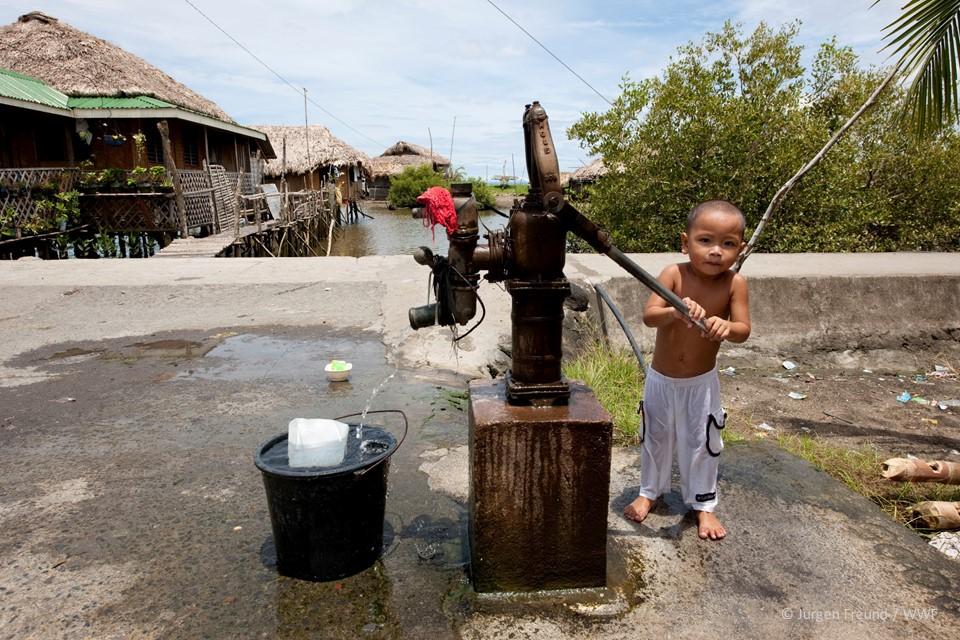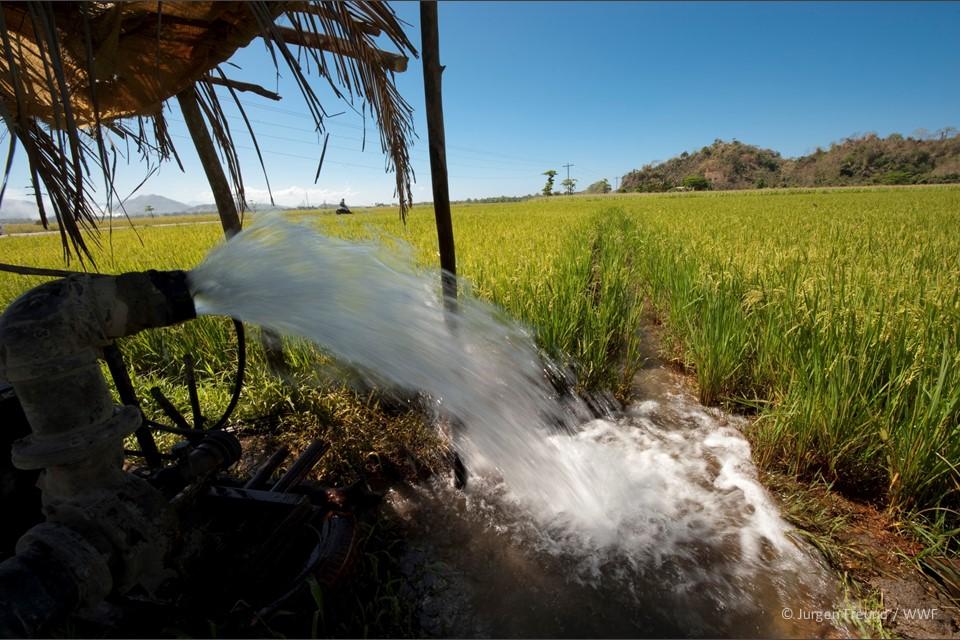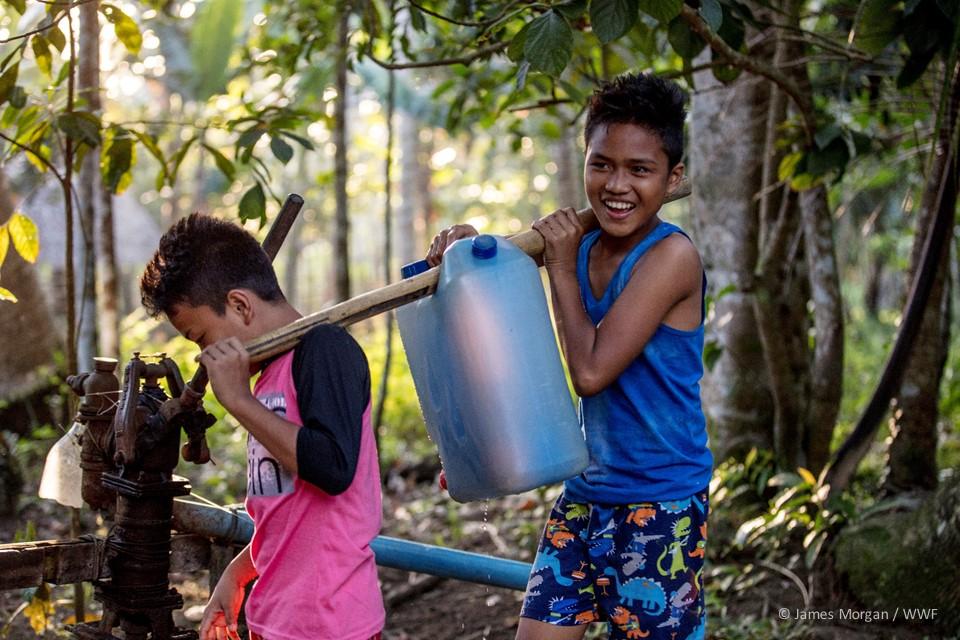How using water wisely could help save lives
April 2020

A boy fills a bucket full of water at the community well. Water is a limited resource, and its proper use and conservation can help save lives, especially in times of pandemic. Photograph © Jurgen Freund / WWF
Increased pressure on the Philippine water system could represent a new call for small heroism in this time of pandemic.
Businesses, government entities, and private individuals alike have campaigned for proper hygiene practices to address the COVID-19 pandemic. Small efforts, like the long and careful washing of hands, have been touted as ways for the public to fight back the deadly virus – but with added cost to resources.
“We really expected domestic water usage to increase. Everyone’s washing their hands more often now. Which is good!” said Paolo Pagaduan, WWF-Philippines’ Forests for Water Project Manager. The challenge of good hygiene for all was one that had been recognized since the very onset of the pandemic. Now, in the thick of the crisis, experts are racing to avert the worst.
A 2019 report from UNICEF showed that three out of ten health facilities in the country lack access to clean toilets. On the level of individuals and private households, around 19 million Filipinos rely on unimproved sanitation facilities, as per a report from the World Health Organization (WHO) dated 2015.
“Many below the poverty line can’t even afford to wash their hands. The water they have is just for cooking, for consumption. Barely any of it is left for hygiene,” explained Pagaduan. With more than a fifth of the over 100 million Filipinos in the country living below the poverty line, many are left open to the threat of viral diseases due to a lack of access to good hygiene.
“If the situations worsen, we have to remember that low-income communities will be the worst hit. During the water crisis, they suffered the most, and they will suffer the most here,” added Pagaduan.

Water is pumped out over rice fields. A key step to water conservation is remembering the true value of water and its importance in our lives. Photograph © Jurgen Freund / WWF
We shouldn’t stop practicing good hygiene just because water resources aren’t unlimited, however.
“We’re not saying, ‘Don’t wash your hands.’ That’s crazy. What we’re saying is that we can still wash our hands effectively, while still conserving water,” said Pagaduan. There are simple steps that one can do in order to stay clean while using only as much water as we need to use. These steps include:
- Turning the tap off while you’re soaping your hands. Leaving the tap on for twenty seconds consumes 1.5 liters of water. You should still wash your hands for that long, says Pagaduan, but the water doesn’t have to be running the whole time;
- Catching any excess water and using it to flush the toilet. Placing a bucket in the shower with you will help in catching water, which can then be used to flush your toilet;
- Saving the water you use to wash your fruits and vegetables and using this to water your plants. You can keep your plants clean and your body healthy while also conserving water resources. Growing your own food at home can also help address food security at a time when mobility is limited.
Most importantly, says Pagaduan, we need to remember that water is very important – and also very finite.
“This situation is a call for us to recognize the value of water, not just for sustenance but also for our hygiene. For us to wash properly and stay clean during this pandemic,” continued Pagaduan.

Two boys smile as they carry home a jug of water. Every drop of water that is conserved can help save the lives of others in this time of pandemic. Photograph © James Morgan / WWF
“There is this new call for us to be like heroes to one another. Every drop of water you save is one more drop your neighbor can use to keep this virus at bay. That’s the power we have in our hands today,” concluded Pagaduan. As we progress ever further into this pandemic, we now see our oldest environmental challenges taking on newer, scarier forms.
Through little changes to our lifestyles, however, the power is in our hands to change the ending of the current crisis.
For more information, please contact:
Mr. Paolo Pagaduan
Forests for Water Project Manager
ppagaduan@wwf.org.ph
For media arrangements, please contact:
Ms. Pam Luber
Integrated Communications Manager
pluber@wwf.org.ph
